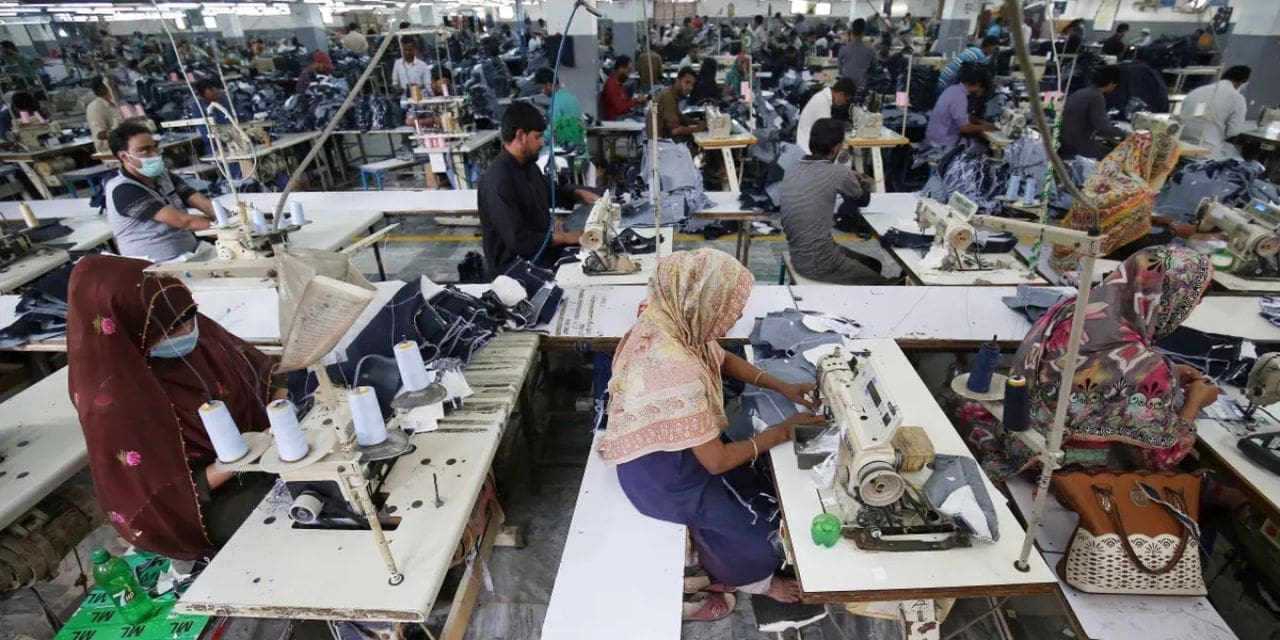Buyers from around the world are increasingly demanding that Pakistan’s textile industry ensure adherence to global norms for human and labor rights. The industry must also upgrade its worker safety practises in order to maintain the EU GSP+, which is vital for the nation’s socioeconomic development.
As a result, one of the key issues that the industry must solve is compliance with the worldwide occupational health and safety guidelines. Fortunately, there is increased awareness of workplace safety regulations, and the sector has already synchronised its development plans with these international norms.
The industry’s health and safety requirements are now being increased more quickly as a result of this. The textile industry has been putting up promising ideas to guarantee workers’ access to fundamental workplace safety amenities. Working with the sector, international organisations like WWF and GIZ are actively developing worker safety standards in Pakistan.
Pakistan’s history of duplicated and misleading factory assessments means that it does not require the expansion of further international organisations, such as the International Accord for Health and Safety in the Textile and Garment Sector.
The Pakistan Accord, a three-year initiative designed to enforce workplace safety standards in the textile and apparel industry through factory inspections, safety upgrades, and remediation, is set to be implemented by International Accord.
It states that it would guarantee three-way consultations with the government, factories, and employers’ associations and will help the sector improve its infrastructure for workplace safety. A for-profit organisation called International Accord has a questionable role in Bangladesh. If it spreads to Pakistan, it will continue to operate without a legislative entity to oversee and regulate it strictly.
The Supreme Court of Bangladesh highlighted Accord’s illegal role. The evidence made it quite evident that, in order to guarantee a coordinated posture with its counterparts, Accord terminated factories based not on its own inspections but rather on the information it got from them.
The factories shut down by the Accord were discovered to comply with Bangladesh’s national regulations.
The Transition Monitoring Committee (TMC) of Bangladesh set a six-month transition period as the limit on the authority that Accord may exercise before being required to turn over all of its responsibilities to a national regulatory agency.
Numerous major organisations, businesses, and brands questioned the reliability and integrity of Accord. The very survival and existence of the Accord in the nation was put in jeopardy by this hostility and expulsion. The organisation is now known as “International Accord,” and it intends to establish a presence in Pakistan.
According to International Accord, Pakistan’s textile and apparel industry has poor infrastructure, poor health and safety regulations, and frequently endangers the safety of its employees.
It also makes the case that the workplace lacks basic hygienic amenities and is gendered in terms of wellbeing. Therefore, it seeks to address these issues through the Pakistan Accord initiative by offering technical and advisory help via plant assessments, which would improve adherence to the global health and safety standards.
Although there are still some health and safety issues in the sector, the agency has completely missed the fact that the current compliance environment has changed and improved in the textile industry.
In order to create a situation where both parties benefit from Accord’s expansion in Pakistan, it has completely ignored the industry’s progress toward conformity with international labour and human rights standards.
The advancement of technical safety standards and the establishment of a strong compliance mechanism to International Labour Organization agreements on occupational health and safety have required major time and financial investments from textile enterprises.
Programs for third-party audits are implemented, technical trainings on the use of personal protective equipment (PPE), first aid, firefighting, and chemical handling are held, and hygiene awareness sessions are held. Gender discrimination in the application of workplace safety standards is strongly discouraged.
In addition, careful thought is devoted to and rigorous testing cycles are used to guarantee product safety. By doing this, it is ensured that a product’s physical and chemical composition adheres to global standards. On the basis of thorough consultations and engineering processes, hazard identification is also put into practise, and control measures are chosen.
According to US Apparel and Textiles, this improved compliance with workplace safety requirements has led to a constant improvement in staff training, capacity building, and injury reporting, and the rate of lost time injuries has decreased.
The Pakistani government is dedicated to enhancing labour rights and workplace standards in its sector. By bringing together the government, employers, workers’ groups, and industry associations, it has, for example, developed the ILO’s Better Work Initiative, a three-year trial programme that aims to strengthen the industry’s competitiveness and improve working conditions. In its assessments and lessons, the programme attempts to make occupational safety and health a top priority.
The industry does not need Accord’s arbitrary evaluations to be conducted in an illegal manner and are duplicate in nature because the previously existing compliance efforts to national health and safety requirements are sufficient.
The industry’s initiatives have already attracted attention on a global scale, which will help stabilise exports and ensure the GSP+ renewal.
Pakistan is now working on legislation to create a national regulatory agency that will oversee and control all domestic and foreign compliance organisations operating there. Since this national regulatory body would be in charge of standardising and regulating all aspects of regulations and compliances, including the Pakistan Accord Program, it is necessary to postpone Pakistan’s membership into the agreement until the nation passes legislation creating it.

